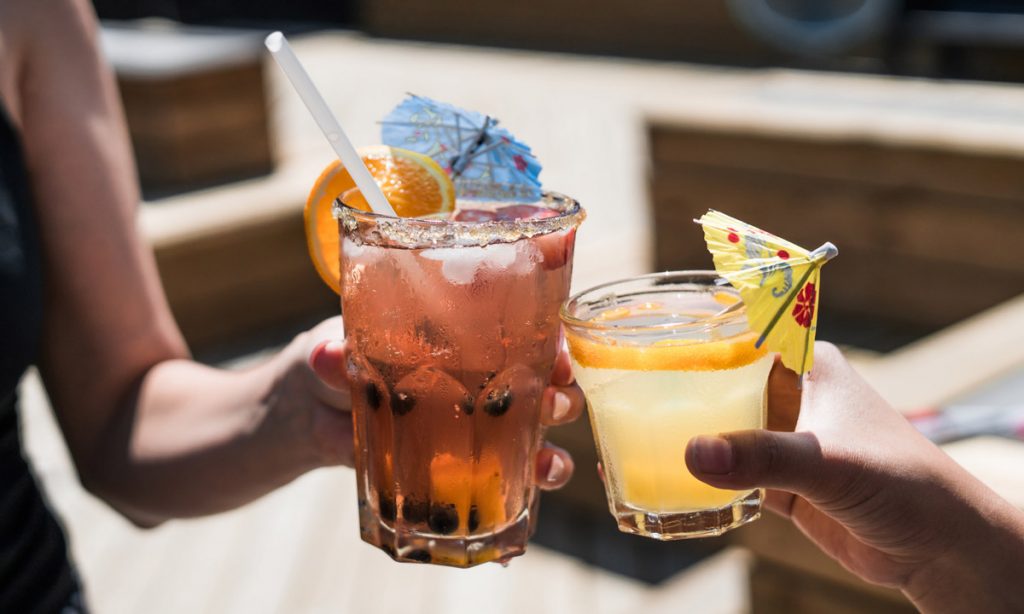The stress, economic uncertainty, and isolation brought about by the pandemic likely had more to do with the uptick than anything.
Since marijuana legalization began happening in the United States, the narrative spewing from the mouths of advocates has been one suggesting the demise of prohibition has been great for the American condition. Many of them hang on research suggesting cannabis can help reduce alcoholism. However, anti-drug warriors are convinced marijuana legalization is connected to an increase in alcohol-related deaths. It’s a potential threat to public health that they fear could consume more of the population as marijuana legalization continues to spread nationwide.
A new study from Well Being Trust shows that Colorado, one of the first states to legalize marijuana for recreational use, has experienced a 13% increase in alcohol-related deaths over the past couple of years. Researchers believe there are several reasons this has occurred, most of which is connected to how alcohol has been intertwined in the American culture. “With alcohol, it’s something that we have socialized and normalized a bit more in our society than we have other aspects of our mental health,” explained Dr. Ben Miller in an interview with The Denver Channel. “We’re not likely to talk about heroin as much as we are to talk about bourbon.” That’s true.

Despite the popularity of alcohol and the relaxed attitude toward its consumption, the drug is responsible for killing around 90,000 Americans every year. Yet, we live in a time when drinking is attached to nearly every social function known to man — from after-work festivities to sporting events — and no one really seems to consider that they might be doing themselves harm.
Drinking typically starts at a very young age, too, which is statistically shown to increase the risk of health problems. Alcoholism is a progressive misalignment. Someone who starts drinking socially as a teen could develop alcohol use disorder. Somewhere around one in eight drinkers (12.7% of the population) meets the criteria of a problem drinker. Still, those who oppose marijuana legalization think that’s what is driving people to engage in more problematic drinking.
“With weed, comes booze,” Tweeted Kevin Sabet, president of the anti-drug organization Smart Approaches to Marijuana (SAM).
With weed, comes boozehttps://t.co/Jsdu2RjE5r
— Kevin Sabet (@KevinSabet) May 21, 2021
Although Sabet’s post, which was made for sharing the study from Well Being Trust, did not elaborate further, his stance is clear: Marijuana legalization is a detriment to the public health of Americans. In a recent article for the Ripon Society, Sabet explains the reasoning behind his largely unpopular opinion.
“Marijuana legalization has been a hot topic of discussion in a handful of states across the country,” Sabet wrote. “Of course, those only skimming the headlines may not realize that more legalization efforts have failed than have been successful in recent years. But what’s truly concerning, and potentially setting us up for decades of harms, is the fact that these legalization efforts are running ahead of the data and ignoring red flags.”

While some of Sabet’s complaints about the legalization of cannabis are commendable, it is a bit of a stretch to even vaguely argue that marijuana legalization may have had something to do with an increase in Colorado’s alcohol-related deaths. It probably didn’t. By the study author’s own admission, the stress, economic uncertainty, and isolation brought about by the pandemic likely had more to do with the uptick than anything. Well Being Trust never actually even pointed to marijuana legalization as being part of the problem. But in Sabet’s mind, it is all connected.
RELATED: Legal Cannabis Might Help Stop Alcohol-Related Deaths
It’s why Sabet argues that decriminalization is a better option for the country than full blown legalization. Eliminating criminal penalties versus establishing a taxed and regulated market would prevent otherwise law-abiding citizens from getting jammed up in the criminal justice system without encouraging the use of another drug and ultimately contributing to its normalization.

“It’s important to note marijuana decriminalization is the removal of criminal penalties for low-level marijuana use. This means putting an end to arresting folks for simply using or possessing small amounts of the drug,” Sabet wrote. “This policy, paired with expungements of previous records and increased funding for treatment, is a policy worthy of support,” he added.
RELATED: Marijuana Is Replacing Alcohol During The Pandemic And May Have Long Term Benefits
President Biden supports the concept of decriminalizing marijuana and other drugs, but that might not be enough for Senate Democrats. Senate Majority Leader Chuck Schumer plans to introduce legislation this year designed to legalize marijuana nationwide. Schumer will attempt to make this happen without including Big Alcohol and Big Tobacco as part of the conversation. Although preventing large corporate drug slingers from getting into the pot industry pleases opposing forces, like Sabet, those lobbies have already infiltrated the cannabis scene and are working to get policy drafted in their favor.
“After years of laying the groundwork that would invariably allow the corporate addiction giants to enter the marijuana industry, leading legalization advocates are now trying to rewrite history,” Sabet wrote. “For the sake of the health and safety of future generations, we must halt the commercialization and normalization of marijuana.”


